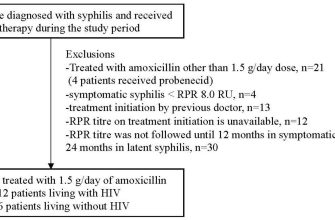Need Doxycycline? Contact your GP or NHS 111 service. They can assess your needs and determine if a prescription is appropriate. Remember, self-medicating can be risky, so professional guidance is paramount.
Doxycycline is an antibiotic, prescribed for various bacterial infections including acne, Lyme disease, and chlamydia. Your doctor will determine the correct dosage based on your specific condition and medical history. Typical courses range from 7 to 14 days. Expect potential side effects like nausea, diarrhoea, or sun sensitivity; inform your doctor immediately if you experience anything concerning.
Accessing Doxycycline through the NHS usually involves a consultation with your doctor followed by a prescription. The cost depends on your individual circumstances and any applicable exemptions. You’ll collect your medication from a participating pharmacy. Always inform the pharmacist about other medications you’re taking to avoid potential interactions.
Important Note: Antibiotic resistance is a growing concern. Only take Doxycycline as prescribed by a healthcare professional. Never share your medication. Follow your doctor’s instructions carefully for the best outcome and to avoid contributing to antibiotic resistance.
- Doxycycline on the NHS: A Practical Guide
- Getting Your Prescription
- Taking Doxycycline Safely
- Further Information
- Contacting Your Doctor
- Getting a Doxycycline Prescription on the NHS
- Alternative Options
- Common NHS Prescribing Guidelines for Doxycycline
- Cost of Doxycycline on the NHS
- Potential Side Effects and Interactions of Doxycycline (NHS perspective)
- Common Side Effects
- Less Common, but Serious, Side Effects
- Pregnancy and Breastfeeding
- Alternative Treatments Available on the NHS
- Non-Antibiotic Options
Doxycycline on the NHS: A Practical Guide
To obtain Doxycycline on the NHS, you’ll need a prescription from your GP or a qualified healthcare professional. Book an appointment to discuss your symptoms. Your doctor will assess your condition and determine if Doxycycline is the appropriate treatment.
Getting Your Prescription
After your consultation, if Doxycycline is prescribed, you’ll receive a prescription slip. Take this to a participating pharmacy. Many pharmacies offer NHS prescription services. Check the NHS website or your local council website for a list of nearby participating pharmacies.
- Cost: The cost of your prescription depends on your eligibility for free prescriptions. Check your eligibility criteria on the NHS website.
- Waiting time: Dispensing time varies by pharmacy; expect to wait a short time, unless you use an online prescription service.
- Alternatives: If Doxycycline isn’t suitable, your doctor will discuss alternative antibiotics.
Taking Doxycycline Safely
- Follow instructions carefully: Take Doxycycline exactly as prescribed; don’t adjust dosage without consulting your doctor.
- Medication interactions: Inform your doctor about all medications you’re taking, including over-the-counter drugs and supplements. Some medications interact negatively with Doxycycline.
- Side effects: Common side effects include nausea, vomiting, diarrhea, and sun sensitivity. If you experience severe side effects, contact your doctor immediately.
- Sun protection: If you’re taking Doxycycline, use high SPF sunscreen and limit sun exposure to prevent sunburn.
- Dairy products: Avoid taking Doxycycline with dairy products or antacids, as this can reduce absorption.
Further Information
For additional information regarding Doxycycline, consult the patient information leaflet provided with your medication or visit the NHS website.
Contacting Your Doctor
If you have any questions or concerns about Doxycycline or its use, contact your GP or the pharmacy.
Getting a Doxycycline Prescription on the NHS
To obtain a doxycycline prescription, book an appointment with your GP (general practitioner). Explain your symptoms; your doctor will assess your needs and determine if doxycycline is the appropriate treatment. They’ll ask about your medical history, allergies, and current medications.
Alternative Options
If your symptoms suggest a sexually transmitted infection (STI), you can access sexual health services directly. Many offer appointments without needing a prior GP referral. These services can diagnose and treat STIs, including prescribing doxycycline if necessary. Check your local NHS website for details on available services and appointment booking.
If you’re travelling to a region with a high risk of malaria or other infections, your doctor might prescribe doxycycline as a preventative measure. Plan your consultation well in advance of your trip to allow sufficient time for assessment and prescription.
Remember, doxycycline is a prescription-only medication. Never attempt to self-medicate or obtain it through unofficial channels. Always seek medical advice before taking any medication.
Common NHS Prescribing Guidelines for Doxycycline
Doxycycline is usually prescribed for specific bacterial infections. Your doctor will consider your individual health and the nature of your infection.
Dosage varies widely depending on the infection being treated. Always follow your doctor’s instructions precisely. Common dosages range from 100mg to 200mg daily, usually split into two doses. The treatment course length typically lasts from seven to fourteen days.
Certain precautions are vital. Inform your doctor about all medications you are taking, including over-the-counter drugs and herbal remedies. Doxycycline can interact with some medications. Additionally, sun sensitivity is a common side effect; use sunscreen and protective clothing.
Pregnancy and breastfeeding are absolute contraindications. Doxycycline should not be used during these periods. Children under 12 years old generally shouldn’t receive Doxycycline. Those with liver or kidney problems should consult their doctor before taking it.
Common side effects include nausea, vomiting, diarrhoea, and stomach upset. Rare, but potentially serious, side effects include allergic reactions and increased sun sensitivity. Seek immediate medical attention if you experience severe reactions.
| Condition | Typical Dosage | Treatment Duration |
|---|---|---|
| Lyme disease | 200mg daily | 14 days |
| Chlamydia | 100mg twice daily | 7 days |
| Acne | 50mg to 100mg daily | Variable, depends on severity |
This information is for guidance only and does not replace professional medical advice. Always consult your doctor or pharmacist for specific instructions and to discuss any concerns.
Cost of Doxycycline on the NHS
Doxycycline is free on the NHS for patients with prescriptions. The cost is covered by the National Health Service, meaning you won’t pay anything at the point of dispensing.
However, the cost to the NHS varies depending on factors such as the quantity prescribed and the supplier. These costs aren’t typically publicly available in a detailed, patient-facing manner.
If you need Doxycycline, consult your doctor. They will assess your needs and provide a prescription if appropriate. You will then obtain the medication free of charge from a participating pharmacy.
If you have concerns about the cost of your prescription for any medication, including Doxycycline, speak to your pharmacist or GP. They can offer advice and possibly explore alternative options if needed.
Potential Side Effects and Interactions of Doxycycline (NHS perspective)
Always inform your doctor about all medications you’re taking, including over-the-counter drugs and herbal supplements, before starting doxycycline. This helps avoid potential interactions. Some medications, like antacids containing calcium, magnesium, or aluminum, can reduce doxycycline absorption. Similarly, certain antibiotics may interact. Your doctor will advise if adjustments are needed.
Common Side Effects
Doxycycline can cause nausea, vomiting, diarrhoea, and heartburn. These are usually mild and resolve without treatment. However, report persistent or severe symptoms to your GP. Photosensitivity, increased sun sensitivity, is another possibility; use high SPF sunscreen and protective clothing outdoors.
Less Common, but Serious, Side Effects
Rarely, doxycycline may cause more serious side effects. These include liver problems (jaundice, dark urine), inflammation of the oesophagus (difficulty swallowing), and allergic reactions (rash, itching, swelling). Seek immediate medical attention if you experience any of these. Doxycycline can affect the balance of gut bacteria, potentially leading to candidiasis (thrush). Consult your doctor if you suspect this.
Pregnancy and Breastfeeding
Doxycycline is generally avoided during pregnancy, especially in the first and last trimesters, due to potential harm to the foetus. It can also pass into breast milk. Discuss alternatives with your doctor if you’re pregnant or breastfeeding.
Alternative Treatments Available on the NHS
Your doctor might suggest alternative antibiotics like erythromycin or clarithromycin for bacterial infections treatable with doxycycline. These are often prescribed for similar conditions, depending on the specific bacteria and your individual medical history. Always discuss potential side effects and drug interactions with your GP.
Non-Antibiotic Options
For certain infections, particularly those caused by viruses, antibiotics like doxycycline are ineffective. Your doctor may recommend antiviral medications, such as aciclovir for herpes simplex virus infections or oseltamivir for influenza. Rest, fluids, and pain relief are also vital components of treatment for many viral illnesses.
Remember, the best course of treatment will depend on your specific diagnosis. Consult your GP or another healthcare professional for a proper assessment and personalized treatment plan. Self-treating can be dangerous; always seek medical advice before starting any new medication or treatment.










